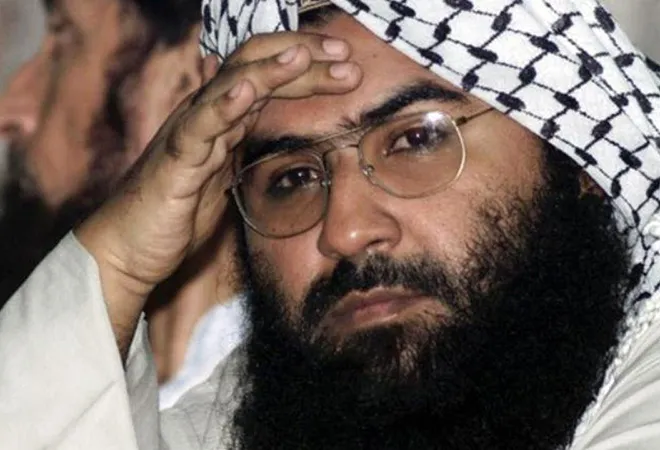The day the International Court of Justice (ICJ) at the Hague ruled in favour of India that former Indian naval officer Kulbhushan Jadhav’s trial under espionage and terror charges in Pakistan violated international law, Pakistan also decided to move against Hafiz Saeed, the mastermind behind the 2008 Mumbai terror attacks. It underscores the tremendous pressure Pakistan is under at the moment on multiple fronts and its desire to get out of the global isolation that it has been facing now after years of sustained diplomatic campaign by India.
On a day that the world’s highest court questioned the very fundamentals of Pakistan’s ability to uphold basic legal norms, Pakistan was forced to acknowledge that its years of fudging on supporting terrorism and extremism might have run its course.
However, few in India would be convinced that this is a fundamental shift in Pakistan’s policy. The default position in India will be to wait and watch how this unfolds over the next few days. Saeed has been “arrested” a number of times before, primarily to fool the international community into believing that Pakistan is serious about fighting terror, only to be made free after some perfunctory procedures.
On a day that the world’s highest court questioned the very fundamentals of Pakistan’s ability to uphold basic legal norms, Pakistan was forced to acknowledge that its years of fudging on supporting terrorism and extremism might have run its course.
He had been roaming freely since 2009 when the Lahore High Court not only declared his house arrest unconstitutional but also quashed all cases against him. The State machinery in Pakistan ensured that no real effort was made to convict the terrorist who has openly boasted about his nefarious activities and had not only been leading prayers in the largest cricket stadium of the country for years but was also allowed to participate in last year’s national elections.
As the noose tightened around Pakistan, Rawalpindi may have decided that the time has come to “arrest” Saeed once again and so on 17 July Pakistan’s Punjab province registered FIRs against Saeed and his accomplices in 23 cases related to terror financing and money laundering.
At one level, this is aimed at alleviated growing concerns in Pakistan about the warning from Paris-based Financial Action Task Force (FATF), which is a 39-member group acting as a watchdog to check financing of terror activities. Pakistan is already on the FATF’s ‘grey list’ since June 2018 and has been warned that it could be put on its ‘black list’.
Pakistan is expected to fulfil its action plan on controlling terror financing and money laundering by October when depending on its performance, the FATF might decide its future course of action. Last month, the FATF President warned Pakistan that there was “absolutely a possibility” that Pakistan could be on the blacklist if it fails to complete its anti-terror action plan. Pakistan has missed all of its milestones so there is immense pressure on Islamabad.
In June, China, Malaysia and Turkey came to Pakistan’s rescue at the FATF and it might be hoping that some cosmetic measures like the “arrest” of Saeed would help it in the October review of its case by the FATF under China’s presidency of the grouping.
The other aspect of this move is the forthcoming visit of Pakistan’s Prime Minister Imran Khan to the United State for his first meeting with US President Donald Trump. This is an important visit for Khan who is looking at this visit to give a boost to his flagging leadership in Pakistan and as a precursor to ending Islamabad’s wider global isolation.
For all the talk of China as an ‘all weather’ partner, when it came to the crunch, China refused to fund Pakistan out of its financial mess. In the end, help from the International Monetary Fund (IMF) and West Asian countries emerged as key and American role critical in the process. The Trump administration has been very tough on Pakistan, even suspending $1.6 billion security aid to Pakistan and the US-Pakistan ties have been on a deep freeze.
The Trump administration has been very tough on Pakistan, even suspending $1.6 billion security aid to Pakistan and the US-Pakistan ties have been on a deep freeze.With Trump now deciding to give a last push to the Afghan peace process, Pakistan’s utility has once again brought it back to the table. But Trump’s transactional nature is ensuring that pressure on Pakistan would continue.
With Trump now deciding to give a last push to the Afghan peace process, Pakistan’s utility has once again brought it back to the table. But Trump’s transactional nature is ensuring that pressure on Pakistan would continue. This was reflected in his tweet when he suggested that the arrest of Saeed by Pakistan was a result of “great pressure” exerted by his administration on Islamabad in the last two years. Khan would be hoping that this would be enough to secure a broad based deal with Trump when the two meet.
India’s multi-pronged strategy of using various instrumentalities of power — legal, diplomatic, economic and military — seems to be having some effect in shaping Pakistan’s behaviour. From accepting most of India’s demands on the Kartarpur corridor negotiations to opening up its airspace and arresting Saeed, Pakistan is signalling that it is keen to reopen the dialogue process with India.
New Delhi can be excused for being sceptical and taking its time in responding to this outreach. How Pakistan deals with Jadhav’s case after the ICJ verdict and to what extent it makes serious attempts at convicting Saeed will be test cases for Islamabad’s commitment to seeking normalisation of ties with New Delhi.
This commentary originally appeared in Money Control.
The views expressed above belong to the author(s). ORF research and analyses now available on Telegram! Click here to access our curated content — blogs, longforms and interviews.




 PREV
PREV


